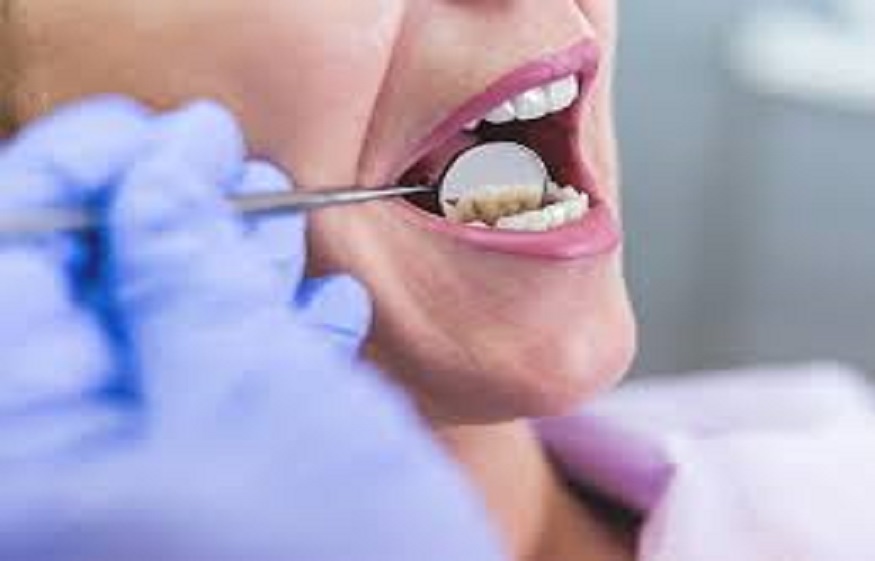7 Common Dental Problems And The Best Ways To Treat Them

Everyday, our teeth go through a lot of stress, from biting, to chewing, eating,and even talking. This makes them a breeding ground for bacteria, some of which are good and some not. For this reason, it is important to take care of our mouth in general, by brushing and flossing at least twice daily, eating healthy foods and going for regular dental checkups.
Sadly, dental problems can occur, even for the most careful people with the best dental routines. Visiting dental hygienistswill make it easier to spot these problems early enough, and prevent them from becoming severe or escalating. Below are some common dental problems, and the best way to approach treatment for each of them.
Tooth decay
Tooth decay is perhaps one of the most common dental problems people face. It is also known as dental caries or dental cavity and is caused by dental plaque. Although there are bacteria present in the mouth, the harmful ones that cause tooth decay are from sugary and acidic food that we consume. When the bacteria settle in the mouth, they form a sticky film called plaque, which gradually eats away the tooth enamel, causing holes and exposing the teeth’s nerves to bacteria. The likelihood of developing tooth decay is dependent on a person’s lifestyle. This means that the more you consume a healthy diet, the more you are less likely to have tooth decay.Nonetheless, some people are at greater risk of having tooth decay, and they include older people and children. This is because their enamel is more vulnerable.
The best way to prevent tooth decay is the prevention of plaque. Since tooth cavity is irreversible, it is best to prevent it in the first place. This can be done throughgood oral hygiene, eating healthy and regular visits to the dentist. When a patient has a cavity, treatment can either be in the form of a dental crown, dental filling or even tooth extraction. Remember that the longer you allow it to deteriorate, the more likely it is for you to develop more problems like abscess.
Gum disease
This is also called periodontitis and is a bacterial infection caused by the accumulation of plaque in the mouth. Gum disease is characterised by the wearing away of the gum, leading to the loosening of its hold on the teeth. Ultimately, gum disease if not treated, can lead to tooth loss. Gum disease or periodontitis occurs in five stages, meaning that you can still get treatment and reverse the effects in its early stages. In the fourth and final stages, treatment may become very difficult.
The common symptom of gum disease is red, swollen and bleeding gums. At this point, you should see your dentist immediately.
Tooth/root infection
This happens when the root part of the teeth becomes infected with bacteria. If left untreated, the nerves and pulp root of the tooth or teeth becomes damaged, leading to very painful abscesses in the form of sore facial swellings. The tooth’s root gets infected when there is a deep crack, fracture or cavity in the tooth. This is why it is important to seek a dentist’s help once you have a cracked or fractured tooth.
When it comes to treatment, the only option is a root canal treatment, whereby a hole is drilled at the top of the infected tooth, all the way down to the root. Suction is used to remove all the infected nerves and tissue, after which the root section is filled with a material called gutta-percha and the teeth finally sealed. Root canal treatment is a very painful process; however, an anaesthetic is used to ease the pain.
Enamel degradation
This is a dental problem whereby surfaces of the enamel are noticeably round and discoloured. It is caused by overexposure to Fizzy sugary drinks and sugary snacks that wear away the teeth’ enamel. Some of these fizzy drinks include soft drinks, carbonated drinks and even some forms of wine.
Treatment is not so easy because eroded parts of the enamel cannot be recovered. However, in the early stages, you have better chances of reversing the damage to some degree, but you might end up requiring bonding support in more severe cases.
Dry mouth
Also called Xerostomia, dry mouth is characterised by a lack of saliva or moisture in the mouth for different reasons. One of its major cause is a side effect of certain medications. Although anyone can be affected by this, certain people are at greater risk. People under prescription drugs and older peopleare at greater risk of having dry mouth. Note that dry mouth can lead to, or speed up having cavities or bad breath.
There is no treatment for dry mouth; however, keeping hydrated by drinking water regularly can reduce discomfort.
Temporomandibular joint disorder (TMJ)
This condition is merely a dysfunction of the joint so named. The joint is located just below the ear, but above the jawbone, and this condition leads to grinding of teeth while sleeping. It can also be linked to stress or psychological problems, so this does not make it a permanent problem.
To treat this condition, the patient would have to address their tension through relaxation exercises, soothing activities and counselling. You can also ask for a mouth guard to protect your teeth at night, as this condition leads to the wearing away of the teeth. Besides this, other symptoms to worry about include headaches, earaches etc.
Oral cancer
This is perhaps the most serious dental problem because it gives no warning, and can also be painless untilit becomes severe. Oral cancer usually starts as a pinkish, painless lump inside the mouth. When you notice this, report to your dentist immediately. Your dentist will examine your head and neck for more symptoms. People who smoke and drink are at greater risk of developing oral cancer, so it would be wise to stop smoking and drinking for the sake of your oral and overall health.
Cancer treatment is very difficult, as death is almost always inevitable. However, in its very early stages, the situation can be managed. The best way to treat oral cancer is to prevent it from happening in the first place. You can do this by staying away from alcohol and smoking, and engaging in good oral hygiene as well as visiting your dentist regularly for a checkup.
Possibility of tooth extraction
If there is any cause for tooth extraction, your dentist will inform you beforehand to get you prepared. With the help of aesthetics, you won’t feel any pain during the procedure. When you have healed completely, your dentist will invite you over again to consider replacement options. Be rest assured that your dentist will be there to guide you on making the most appropriate replacement choice for your teeth.
At Dental Hygienists London, we are always available to help our patients get the best treatment and information to keep their teeth healthy. Give us a call today to book an appointment with u






